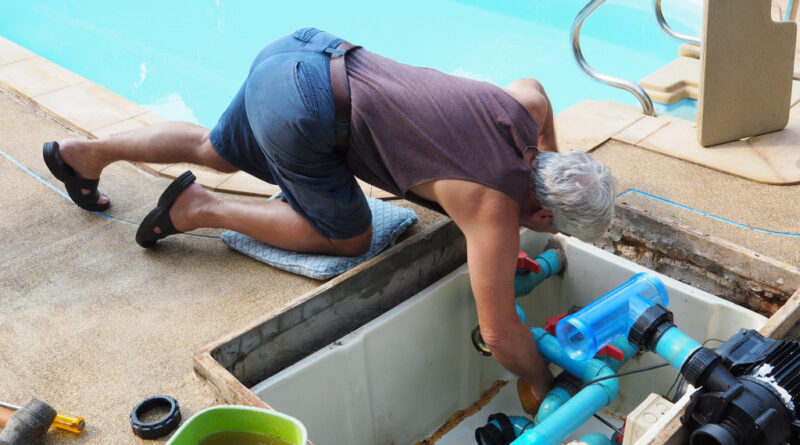Choosing Between Cartridge, Sand, and DE Filters
Choosing the right filter for your swimming pool is essential to maintaining clean and clear water. Filters play a crucial role in removing debris, algae, and contaminants from your pool, making it safe and enjoyable for swimming. They help prevent issues such as algae blooms and cloudy water, which can detract from your pool experience. The three main types of filters available are cartridge filters, sand filters, and diatomaceous earth (DE) filters. Each type has its own unique benefits and drawbacks, making the decision process crucial for any pool owner. When choosing between these filter options, it’s important to consider factors such as maintenance, filtration efficiency, and overall cost.
You should also evaluate the size of your pool, the frequency of use, and your budget for initial and ongoing maintenance expenses. Understanding these variables will guide you in selecting the most suitable filter type that aligns with your specific needs, ensuring a clean and healthy swimming environment. By making an informed decision, you can maximize the enjoyment and longevity of your pool, ultimately enhancing your overall swimming experience.
Understanding Cartridge Filters
Cartridge filters are a popular choice among pool owners due to their compact size and user-friendly operation. They utilize a pleated filter element that captures dirt and debris as water flows through it. The key advantage of cartridge filters is their low maintenance requirements. You can simply remove the cartridge, rinse it with a hose, and place it back into the filter system. This ease of maintenance makes cartridge filters an attractive option for busy homeowners who may not have time for extensive upkeep. Additionally, cartridge filters do not require backwashing, which can save water and is an eco-friendly aspect of their design.
However, while cartridge filters are efficient for everyday cleaning, they may not be as effective at removing very fine particles compared to other filter types. This limitation can lead to cloudy water if the pool is heavily used or if there are specific issues, such as algae blooms. Despite these downsides, many pool owners find that the convenience and efficiency of cartridge filters make them a viable option when choosing between filtration systems. Their low maintenance and effectiveness at capturing larger debris types often make them a preferred choice for smaller residential pools.
Exploring Sand Filters
Sand filters have long been a staple in the pool industry, known for their efficiency in filtering water. They work by pushing water through a bed of specially graded sand, which traps dirt, debris, and other contaminants. One significant advantage of sand filters is their ability to handle large volumes of water quickly, making them ideal for bigger pools. When choosing between sand filters and other types, homeowners often appreciate the speed and effectiveness of these systems, especially for high-traffic pools. Sand filters are also relatively simple to operate. Regular maintenance involves backwashing the filter to remove trapped debris, which can waste some water, but is essential for maintaining optimal performance.
However, sand filters do have limitations. While they are effective at removing larger particles, they may not filter out very fine debris, which can leave your pool water looking somewhat cloudy. For pool owners who prioritize crystal-clear water, this can be a significant drawback. Regular monitoring and maintenance are crucial to ensuring that the sand filter operates at peak efficiency. Despite these challenges, many homeowners find that sand filters provide a solid balance between performance and cost, making them a popular choice when choosing between different types of pool filtration.
Analyzing Diatomaceous Earth (DE) Filters
Diatomaceous earth (DE) filters are known for their exceptional filtration capabilities, making them a preferred option for those who want pristine pool water. DE filters use a fine powder made from crushed diatoms to trap contaminants as water passes through. When choosing between DE filters and other systems, many pool owners are drawn to their ability to remove even the smallest particles, including bacteria and algae. This superior filtration capability results in crystal-clear water, which is particularly appealing for families who swim frequently or for pools that host events.
However, the maintenance of DE filters can be more labor-intensive compared to cartridge or sand filters. Regular backwashing is necessary to keep the filter functioning optimally, and fresh DE powder must be added after each backwash. This process can be cumbersome, requiring more time and effort from pool owners. Furthermore, DE filters tend to be more expensive to purchase and maintain, which can be a consideration for budget-conscious homeowners. Despite these challenges, the quality of water that DE filters provide often justifies the investment. For those committed to achieving the best water quality, DE filters present a compelling option when choosing between filtration systems.
Key Considerations for Choosing a Filter
Ultimately, the decision of which filter to use for your swimming pool depends on a variety of factors, including the pool’s size, usage, and your maintenance preferences. As a pool owner, evaluating your needs and priorities is essential when choosing between cartridge, sand, and DE filters. Each type has its distinct advantages and challenges, making it important to weigh these factors carefully. Consulting with professionals can also be beneficial in making an informed decision. For those seeking assistance, local experts such as a Swimming Pool Cleaning Service Victorville can provide valuable insights and recommendations tailored to your specific pool setup. By taking the time to understand the differences between these filter types, you can ensure that your swimming pool remains clean, safe, and enjoyable for years to come.
Final words
when choosing between cartridge, sand, and DE filters, it’s essential to consider your specific needs, maintenance capabilities, and budget. Each filter type offers unique benefits and drawbacks that can significantly impact your pool’s cleanliness and clarity. Understanding these differences will empower you to make an informed choice, ensuring that your swimming pool remains a safe and enjoyable retreat. Whether you prefer the low maintenance of cartridge filters, the efficiency of sand filters, or the superior filtration of DE filters, knowing what suits your needs best is key to long-term satisfaction. By evaluating your options carefully, you can enjoy a pristine swimming pool experience that meets your expectations.




